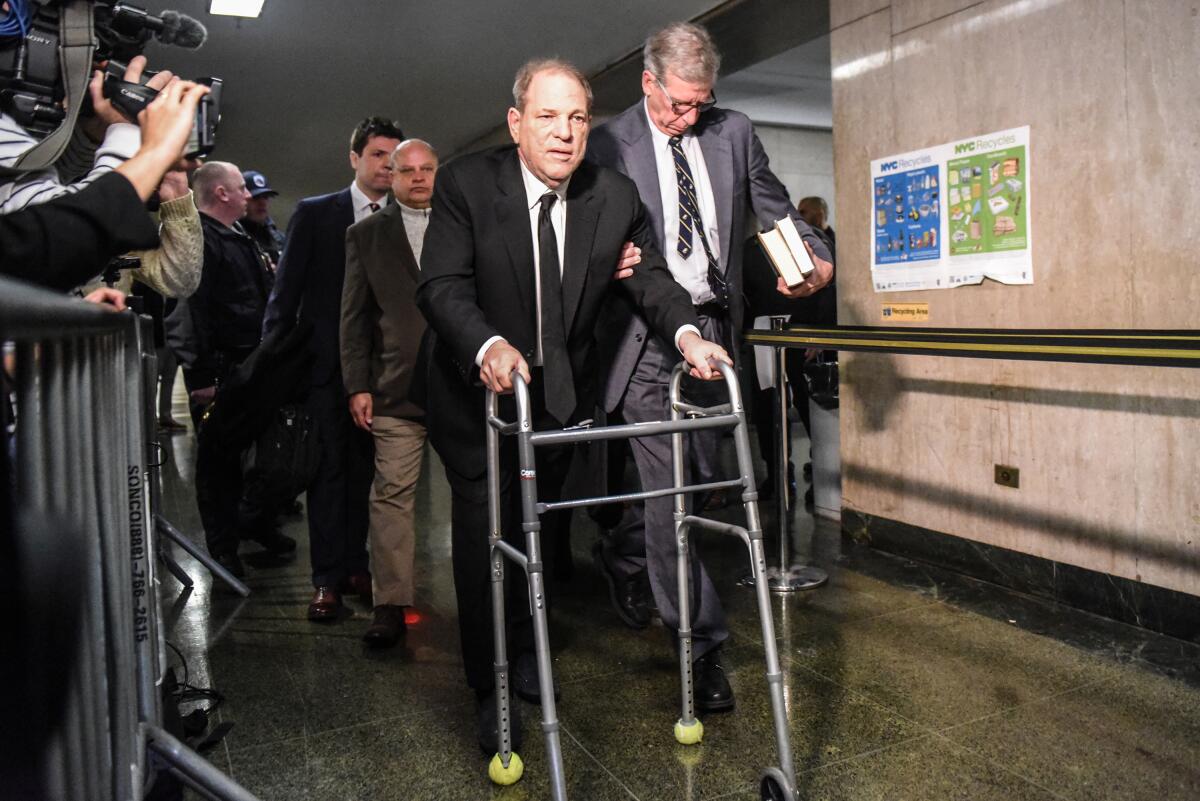The #MeToo movement let victims be heard. Weinstein verdict tells victims they can be believed

- Share via
At last, the disgraced film producer Harvey Weinstein has been held legally accountable for his reprehensible sexual misconduct and the trauma it caused to far too many women working in the entertainment industry. After a trial that included weeks of testimony from multiple women who said that the producer had assaulted them, a New York jury found Weinstein guilty of raping one woman and committing a felony sex crime against another.
Weinstein had already been banished from Hollywood. The #MeToo movement, ignited more than two years ago by his dozens of accusers, started a sweeping cultural shift toward zero tolerance of sexual harassment in the workplace and society (although we still have a long way to go).
But Weinstein’s conviction shows that rich and powerful people who abuse others can’t always count on their clout and their bank accounts to keep them out of jail, which is where Weinstein was taken right after the verdict — apparently, much to his surprise. That’s evidence of another (long overdue) cultural shift. The verdict offers a measure of vindication and hope not just for the anguished, outraged voices of the #MeToo movement but for all victims of sexual assault who put themselves through the ordeal of a court trial or, worse, never get to trial because a prosecutor deems the case too risky to win.
The #MeToo movement let victims be heard. The verdict shows that sexual harassment — even by the rich and powerful — won’t always be ignored or swept under the rug. What happened to these two women was not simply bad behavior, it was criminal behavior.
That was particularly important in this complex case with its matrix of charges. Weinstein’s defense attorney argued that some of the women who testified that Weinstein assaulted them later had friendly, even consensual sexual, relationships with the producer. Prosecutors countered that Weinstein kept in contact with the victims to maintain control over them.
This trial isn’t the first high-profile court battle in which an accuser triumphed over a famous and powerful man. Almost two years ago, Bill Cosby was found guilty of aggravated indecent assault against Andrea Constand — just one of dozens of women who accused him of sexual assault. Now with the Weinstein verdict, we can only hope that we are seeing a trend — a sign that society has evolved and better understands what it means to be victimized by a sexual predator. (There will be more Weinstein verdicts too, because he also faces sexual assault charges in Los Angeles.)
Trials are often not the best mileposts for societal progress. They can be decided on narrow grounds by quirky juries that don’t hear everything about an accuser or a victim. But in this case, Weinstein’s conviction is a triumph for a society that says it will no longer tolerate sexual abuse by powerful people.
More to Read
A cure for the common opinion
Get thought-provoking perspectives with our weekly newsletter.
You may occasionally receive promotional content from the Los Angeles Times.









